Boehm: Lingering questions from U.S. Soccer’s presidential election
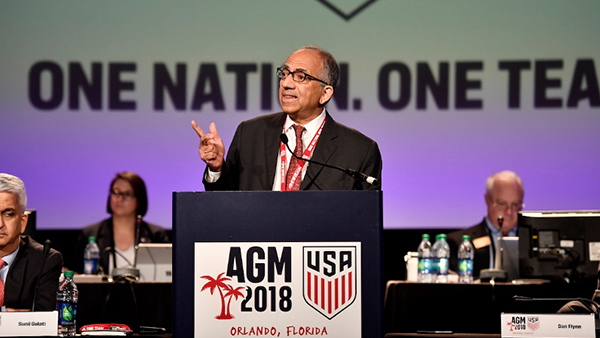
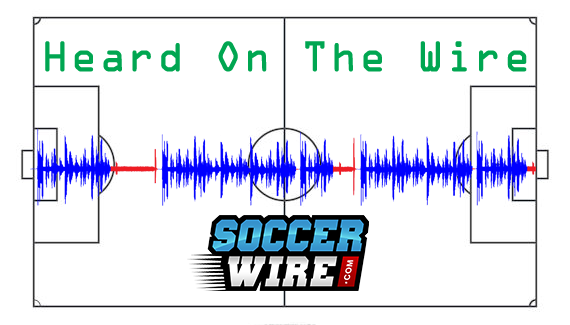 ORLANDO, Fla. – The election process is done and dusted. Carlos Cordeiro is the new president of the U.S. Soccer Federation and many both inside and outside the process are relieved that the long, contentious race is over.
ORLANDO, Fla. – The election process is done and dusted. Carlos Cordeiro is the new president of the U.S. Soccer Federation and many both inside and outside the process are relieved that the long, contentious race is over.
But this particular package doesn’t exactly have a neat bow and tidy wrapping.
The federation’s first contested presidential election in 20 years, Saturday’s final results were what many insiders expected them to be, with Cordeiro’s savvy operating skills trumping Kathy Carter’s well-backed campaign and the motley crew of six “change” candidates who finished well off the pace. How things really moved from A to Z behind the scenes was anything but clear, though.
After watching this process unfold in person, and speaking with many people in and around the process, here are some lingering questions I carry with me as I depart central Florida.
*How did the Athlete Council reach their pivotal decision to vote as a bloc for Cordeiro?
As with USSF elections of the past, the Athlete Council flexed the muscle that federal law gives them (under the regulations of sports’ national governing bodies, athletes must hold 20 percent of the overall vote) to swing the race towards the eventual winner. And it’s pretty striking that with four former national-team players in the race, they picked the only one of the eight candidates with no playing experience beyond high-school soccer.
About 15 of the AC’s 20 members were present in Orlando to take part in the deliberations leading up to their choice, and 12 of them actually cast ballots. The group spent somewhere north of seven hours in private meetings on Friday before finally concluding around midnight. Their shortlist was apparently Cordeiro, Carter or Kyle Martino, though individual athletes probably would’ve cast a vote or two for other candidates if the council had “splintered” instead of “bloc-ed.”
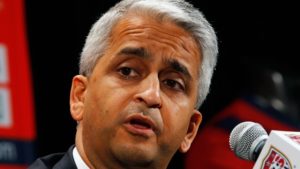 Why was it so important to them to reach total consensus? Could they not have allowed one or two individuals with strong feelings about the candidates to express themselves, and still wielded an outsize influence with a “partial bloc,” to coin a phrase? What did Sunil Gulati, Don Garber and CONCACAF chief Victor Montigliani say to the AC when they were invited to address the group on Friday?
Why was it so important to them to reach total consensus? Could they not have allowed one or two individuals with strong feelings about the candidates to express themselves, and still wielded an outsize influence with a “partial bloc,” to coin a phrase? What did Sunil Gulati, Don Garber and CONCACAF chief Victor Montigliani say to the AC when they were invited to address the group on Friday?
Hope Solo turned heads, and probably confirmed some people’s impressions of her as a loud firestarter, by vociferously criticizing the AC’s actions and suggesting that they were influenced by outside forces. It’s almost impossible to prove her allegations, but I’ve had several industry insiders emphasize to me just how powerful Soccer United Marketing and super-agencies like Wasserman Media Group are behind the scenes with top current and former U.S. players.
One last thing: The hubbub over the likes of Jonathan Spector and Brad Guzan not actually turning up to press the button on Saturday is somewhat misplaced, because once the AC decided to vote as a bloc, it didn’t matter whether one of them or 20 of them voted. Part of the AC’s stated rationale for a bloc vote was that it empowered and included those who couldn’t be there in person, which is a laudable show of unity.

Yet it also makes it even more interesting that U.S. Women’s National Team legend Heather O’Reilly flew across an ocean in the middle of her club season in England to take part in the process and physically cast a vote.
*What really went down in Steve Gans’ hotel room on Thursday night?
I’ve spoken to several people who were in the room when the so-called “Gang of Six” met in an effort to unite as a coalition of “change candidates,” and I still don’t feel certain of what happened. I wrote about this situation on Friday, and I’ve subsequently heard several other versions of events.
Did Eric Wynalda’s representatives demand that the six promise to drop out and unite behind whichever of them got the most votes in the first round of voting? Did Michael Winograd water down the “unity statement” in hopes of not burning his bridges with the federation establishment? Did Gans and his team torpedo the whole thing by having a journalist, Washington Post reporter Steve Goff, in the room?
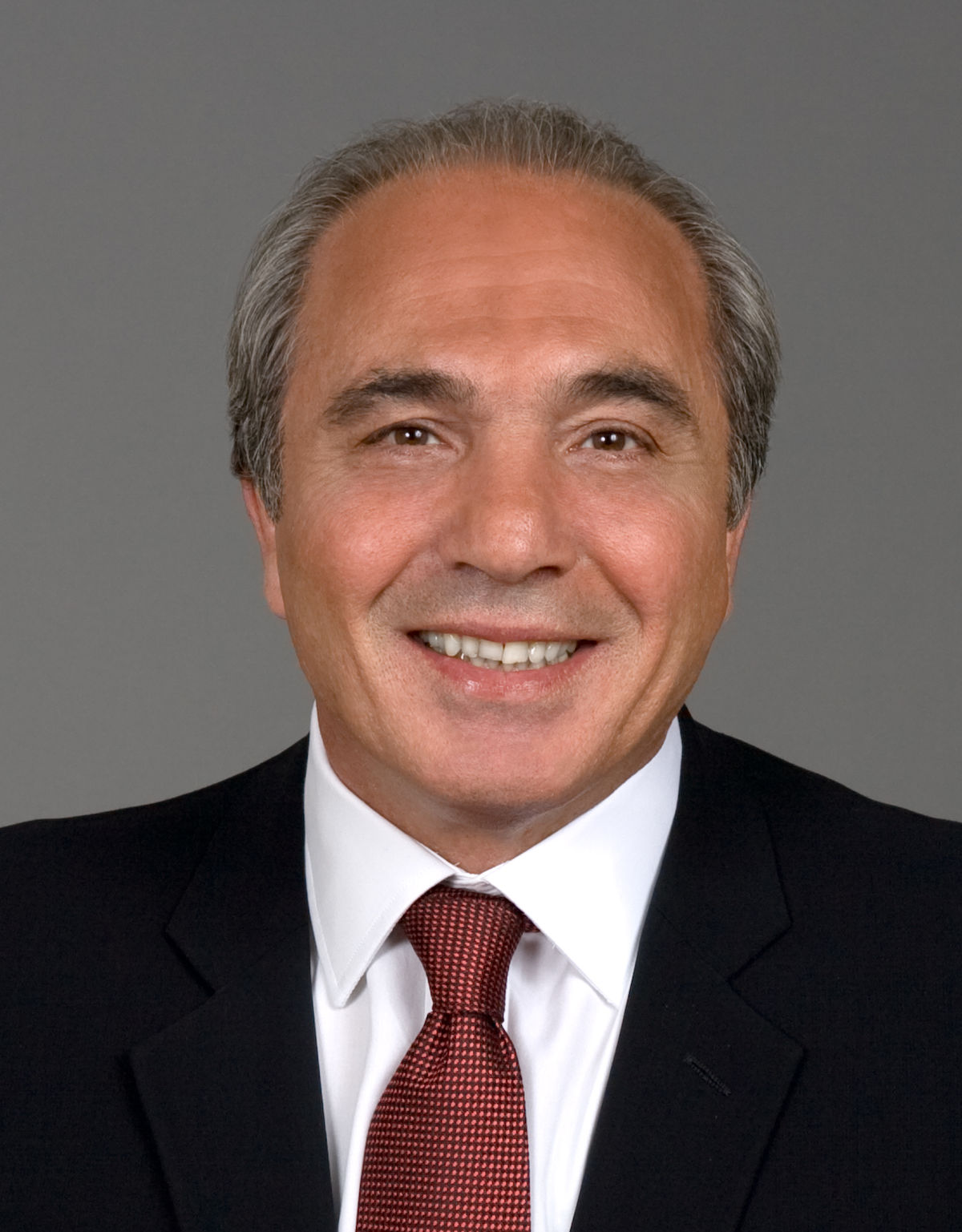 Why did Paul Caligiuri give Sports Illustrated’s Grant Wahl the impression that he wasn’t involved in the process when multiple sources say he was? Why are multiple sources telling me that NASL club owners Rocco Commisso (pictured at right) and Riccardo Silva provided support to not just one (Wynalda) but as many as three candidates?
Why did Paul Caligiuri give Sports Illustrated’s Grant Wahl the impression that he wasn’t involved in the process when multiple sources say he was? Why are multiple sources telling me that NASL club owners Rocco Commisso (pictured at right) and Riccardo Silva provided support to not just one (Wynalda) but as many as three candidates?
And even if the Gang of Six had gotten their act together, would it have done anything to change the election’s outcome?
*Why did US Youth Soccer drop an unexpected endorsement of Cordeiro at 10 pm ET on Friday night?
This was a strange one. On the eve of the vote, the nation’s biggest youth soccer body unexpectedly sent a letter endorsing the eventual winner to some – but not all – journalists covering the AGM. I did not receive the letter, and couldn’t find any trace of it on the USYS’ website or social-media channels when I heard about it on Saturday morning. Kartik Krishnaiyer did, and posted it on Twitter:
. @USYouthSoccer urges its member associations to vote as a bloc for @CACSoccer . Cordeiro has lots of youth support (but not all by any stretch) but I’m guessing some associations won’t be thrilled with this. #USSFElection #USSFPresident pic.twitter.com/aqyTMJTafV
— Kartik Krishnaiyer (@kkfla737) February 10, 2018
There’s noting explicitly untoward about this. Though its 55 state associations all have votes in these federation elections, USYS doesn’t have any power or real leverage to force them to vote in any certain way, and has every right to go public with its views.
But the timing and delivery was not optimal for reaching massive numbers of voters, and they didn’t exactly pull out all the stops to make sure everyone knew about it. Were they scrambling to make sure they’d aligned with the winning team in time? One election source even suggested to me that the late-night endorsement was actually a signal of sorts, conveying to other voting groups – perhaps the Athlete Council, which was still in executive session at that time – that momentum was shifting towards Cordeiro.
*Why did the initial vote malfunction?
When the electronic voting process finally began shortly before 11 am, the first attempt fizzled amid confusion and apparent malfunctions of some of the 507 keypads being used. It was bad enough to force what was effectively a “do-over,” cancelling those votes that had been cast in order to start again from the beginning.
Here’s one of the electronic key pads voters will be using today to vote for #USSFPresident. #USSFElection pic.twitter.com/vbvwxs8382
— Sebastian Salazar (@SebiSalazarFUT) February 10, 2018
Annnnnnnd we’re voting.
Wait. Gulati announces people are getting a ‘please vote’ message after already voting.
Update: Turns out you have to hit SEND. #USSFPresident #USSFElection #USSF pic.twitter.com/T0f8hkvVbQ
— Sebastian Salazar (@SebiSalazarFUT) February 10, 2018
Outgoing president Gulati and Credentials Committee honcho Bob Kepner appeared to be scrambling to come to grips with the situation as they addressed the membership.
A clear murmur of skepticism floated up from the back of the room, like Parliament backbenchers https://t.co/Znpuu8YRQN
— Charles Boehm (@cboehm) February 10, 2018
Though it was resolved quickly enough to hold what appeared to be a straightforward first vote minutes later, the incident didn’t exactly engender confidence in those harboring doubts about the clarity and cleanliness of the process.
*Why were both Carter and Cordeiro in this race in the first place?
I’m highly familiar with American soccer’s love affair with conspiracy theories and have no desire to fuel that obsession any further without a damn good reason to. But the simple reality that there were two “establishment” candidates in this election remains somewhat puzzling.
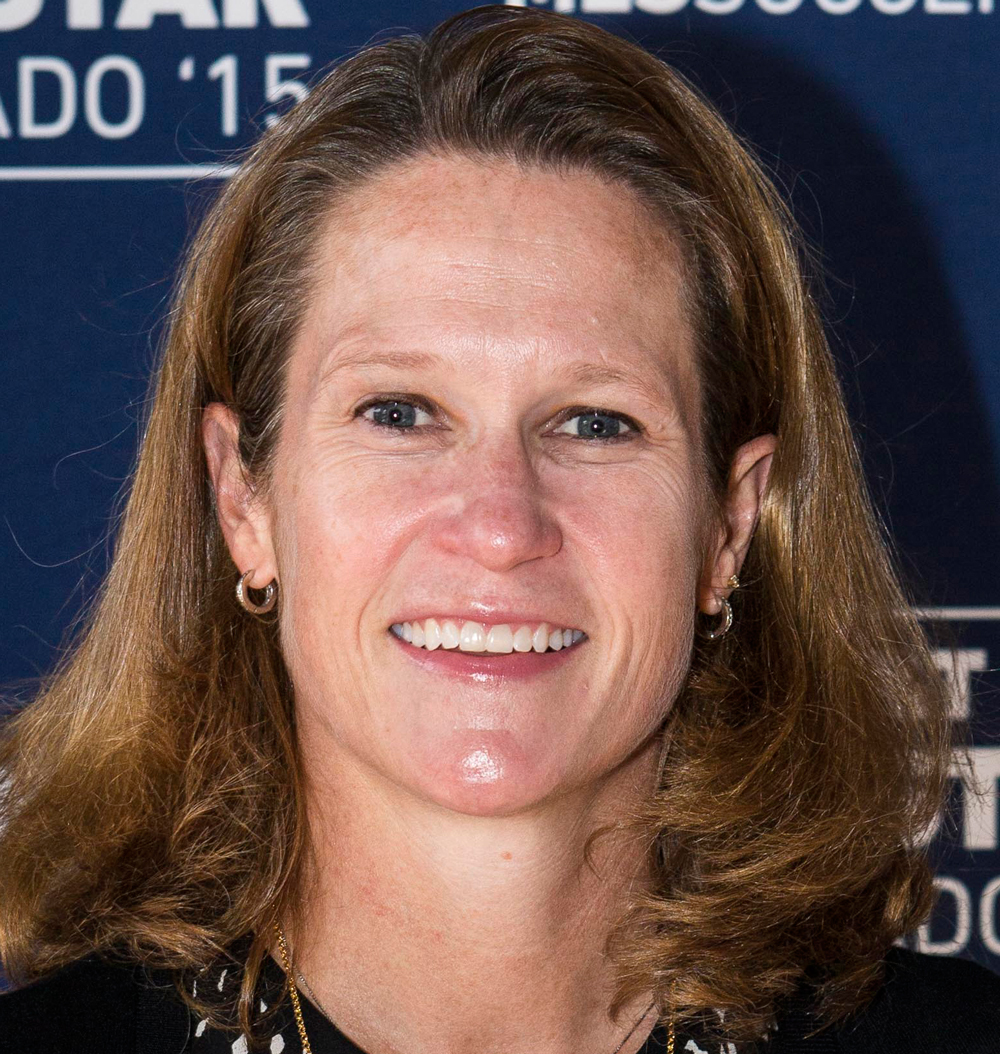 The reporting to date suggests that Cordeiro decided to run before Gulati decided not to seek re-election, and thus Gulati nudged Carter into the race to avenge what he perceived as a personal betrayal. But several veteran observers have made the case to me that Carter was actually a “foil” to help, not hinder, Cordeiro’s march to victory.
The reporting to date suggests that Cordeiro decided to run before Gulati decided not to seek re-election, and thus Gulati nudged Carter into the race to avenge what he perceived as a personal betrayal. But several veteran observers have made the case to me that Carter was actually a “foil” to help, not hinder, Cordeiro’s march to victory.
In this version of events, Carter served as an avatar for the negative perceptions of the establishment, a link made easy by her longtime employment with MLS and SUM, allowing Cordeiro – no stranger to the halls of USSF power – to better depict himself as an independent outsider. And when the writing on the wall became apparent with Cordeiro finishing tops in the first two ballots, MLS switched support to him.
Sound crazy? Believe me, I can understand why. But this has been a crazy election, frankly.
*Will someone formally accuse the federation of election irregularities?
I spoke to multiple attorneys at the AGM who were present to observe the proceedings on behalf of one interested party or another, and gather data on any evidence of improper actions or procedures on the part of the fed.
No one is ready to speak out on the record yet. But one person alleged that they witnessed 10 or so different violations of standard operating procedure in events of this sort, from simple departures from Robert’s Rules of Order to actions that could be interpreted in a more sinister light.
This was my first AGM and I have no idea if those claims have merit, or if any specific legal actions will come of this. But it’s something to bear in mind.
SOCCERWIRE MARKETPLACE
- The St. James FC Virginia 2024-2025 Travel Tryouts
- TSJFCV - Hiring Travel Soccer Coaches
- Hiring: U13-U19 Boys Director
- Coaches Needed
- Train with professional AC Milan coach
- Loudoun Soccer 2024/25 Travel Player Placement Sessions
- Official Elite Summer Soccer Camps with Elite Pro Clubs in Europe
- Official EPL Tickets: ARSENAL, LIVERPOOL, TOTTENHAM & MORE
- Travel to Denmark for Dana Cup Hjørring 2024
- New England Surf Challenge and Showcase 2024











